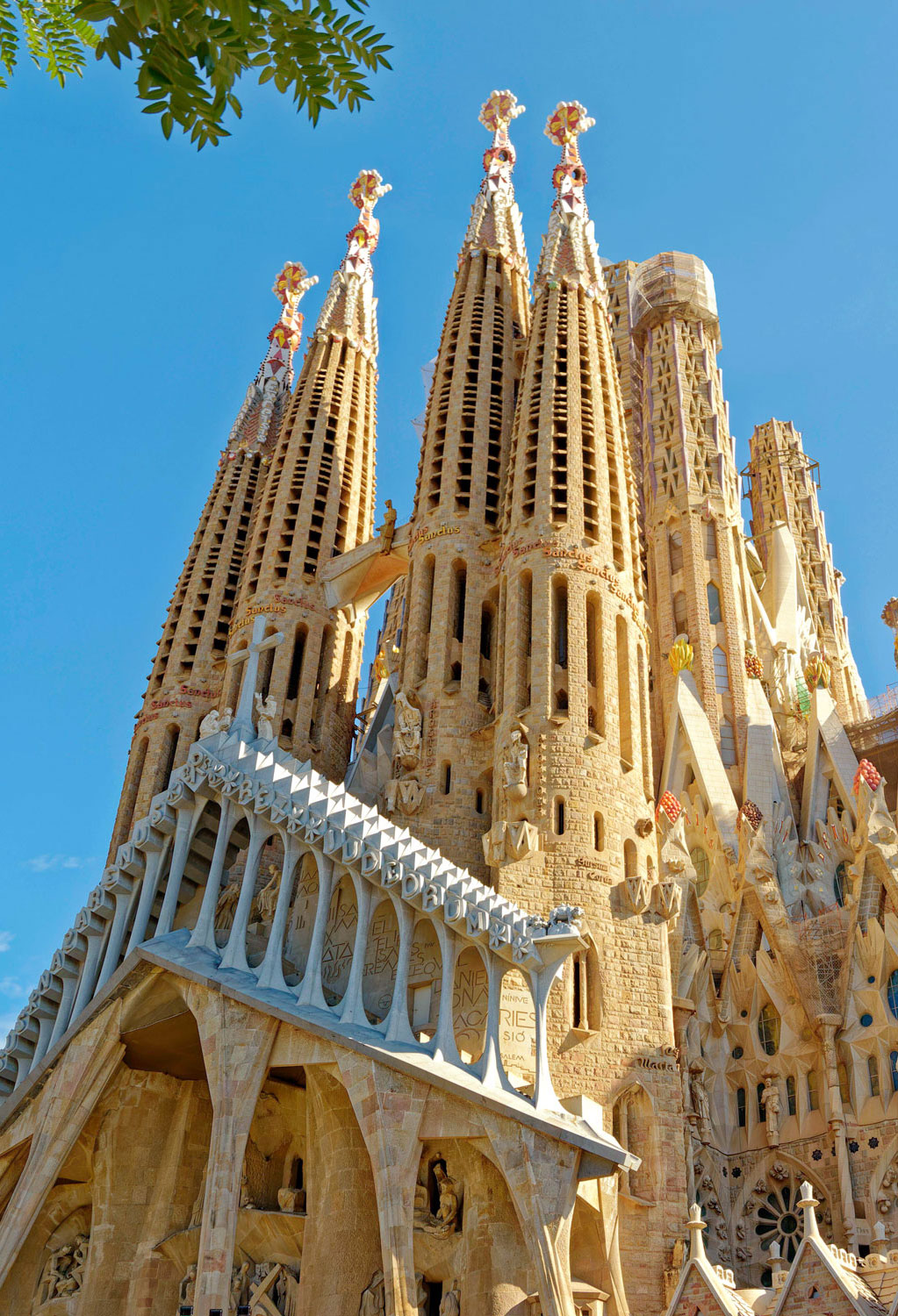One of the world’s most famous architects, Antoni Gaudí adored Barcelona, Spain’s second-most populous city and the capital of the autonomous community of Catalonia. The Catalan architect adorned it with so many stunning designs that his work is almost synonymous with the city itself. From light posts — his first public commission — to private homes, parks, apartments, and churches, Barcelona is a wonderland of Gaudí’s ornate and whimsical works. Fourteen of his commissions remain in the city and surrounding areas, with seven comprising a UNESCO World Heritage Site dedicated to his works. Here are five Gaudí landmarks in Barcelona you definitely shouldn’t miss.
Park Güell
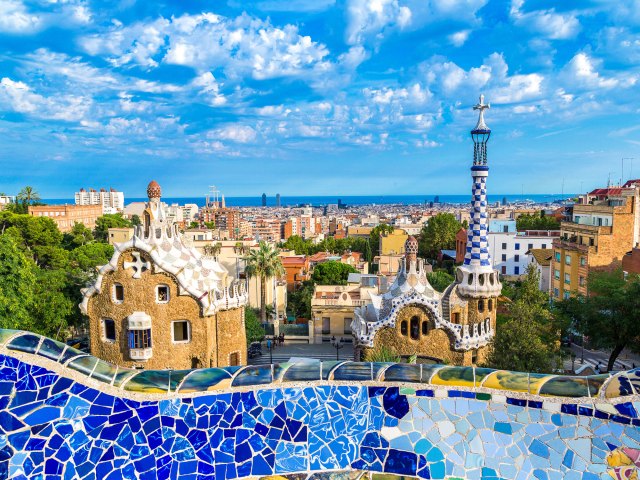
Located on Carmel Hill, Park Güell is one of the largest green spaces in Barcelona and one of the city’s most popular parks. Originally built as a private recreation space for wealthy residents of the area, the park is now open to the public. It features a dramatic curved stairway guarded by a tiled dragon, elaborate gardens, and a Nature Square crowned with a colorful undulating bench that offers breathtaking views of the city. To control overcrowding, certain hours are reserved for residents of the neighborhoods adjacent to the park, and timed tickets are required for entry. While visiting the park, be sure to check out the Gaudí House Museum, where the architect lived from 1906 to 1925.
Casa Batlló
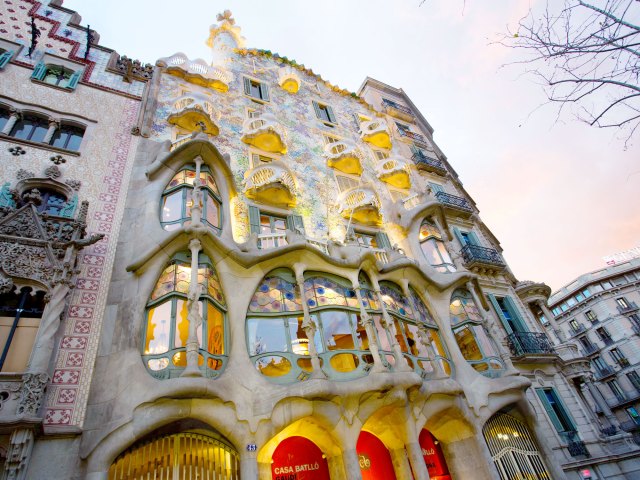
Industrialist Josep Batlló gave Gaudí full creative control over this 1877 house on the posh promenade Paseo de Gracia in the city center. Instead of Batlló’s intention to demolish the structure, the architect had other plans. Gaudí completely reimagined and reinvented the facade, creating a colorful and curvy design that incorporates marine and floral elements, masks, dragons, and bones. The light-flooded interior of Casa Batlló is as whimsical and delightful as the facade, featuring stained glass, wavy ceilings, a mushroom-shaped fireplace, and a brilliantly tiled indoor oasis. Don’t miss the glorious rooftop terrace, especially the performances on “Magic Nights.”
La Sagrada Familía
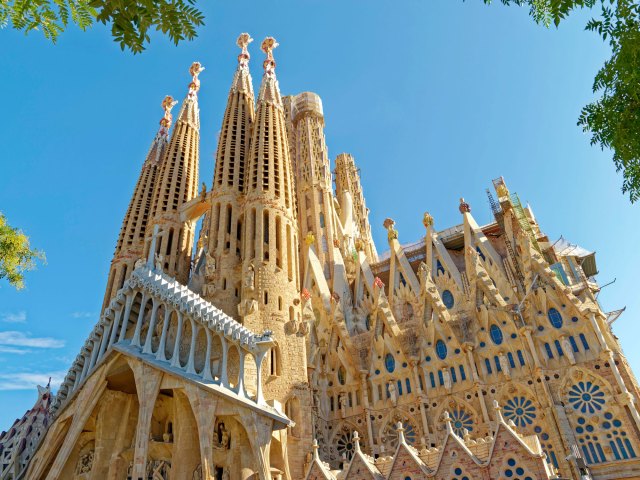
The masterpiece that occupied Gaudí from 1883 until his death in 1926, the Sagrada Família remains Barcelona’s most iconic landmark. Construction on the unbelievably intricate church (whose full name is Basílica i Temple Expiatori de la Sagrada Família) remains ongoing — although the interior was completed in 2010 (the same year it was consecrated as a basilica by Pope Benedict XVI), the exterior is unfinished. The tower of Jesus, the final piece of the masterpiece, is slated for completion in 2026. It will join a complex that includes a central nave, glorious facades, crypts, bell towers, and a statuary. More than 4 million people visit the Sagrada Família each year, making it one of the city’s most popular tourist attractions.
Casa Milà
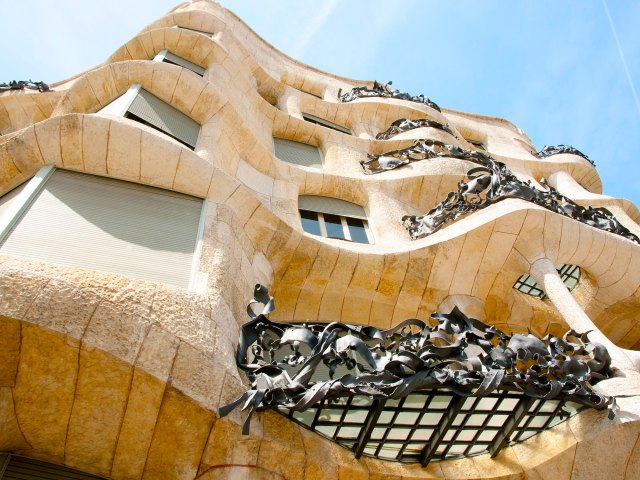
The last work Gaudí designed before fully committing himself to the Sagrada Família, Casa Milà was nicknamed “La Pedrera” (the Stone Quarry) by locals who disliked its rough-hewn appearance while it was under construction. Fortunately, opinions changed, and now the building is regarded as a modernist masterpiece. The intricate wrought-iron entrance doors, balustrades, basement window grilles, and balconies are of particular interest. While the house is open to the public for tours, Casa Milà still has three rented apartments that have been home to lucky tenants for more than 70 years.
Palau Güell
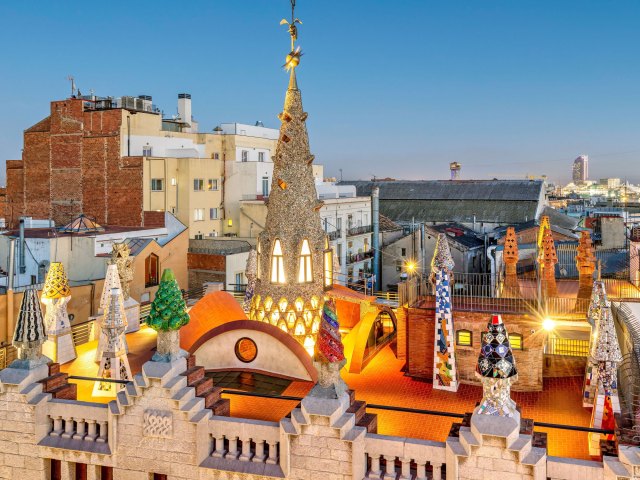
Intricate ironwork is also apparent at Palau Güell, one of Gaudí’s earlier works from when he was still firmly designing in the Art Nouveau tradition. Built between 1886 and 1888 in the El Raval neighborhood, the palace was designed for the industrial tycoon Eusebi Güell. The ornate arched oval entrances of the mansion were constructed to accommodate horse-drawn carriages — guests could alight into a covered courtyard while the animals were led down ramps into the stable. The grand upper lobby is a study in marble, while the rooftop’s whimsical and colorful chimneys give a preview to the development of the architect’s later style.
More from our network
Daily Passport is part of Inbox Studio, an email-first media company. *Indicates a third-party property.






